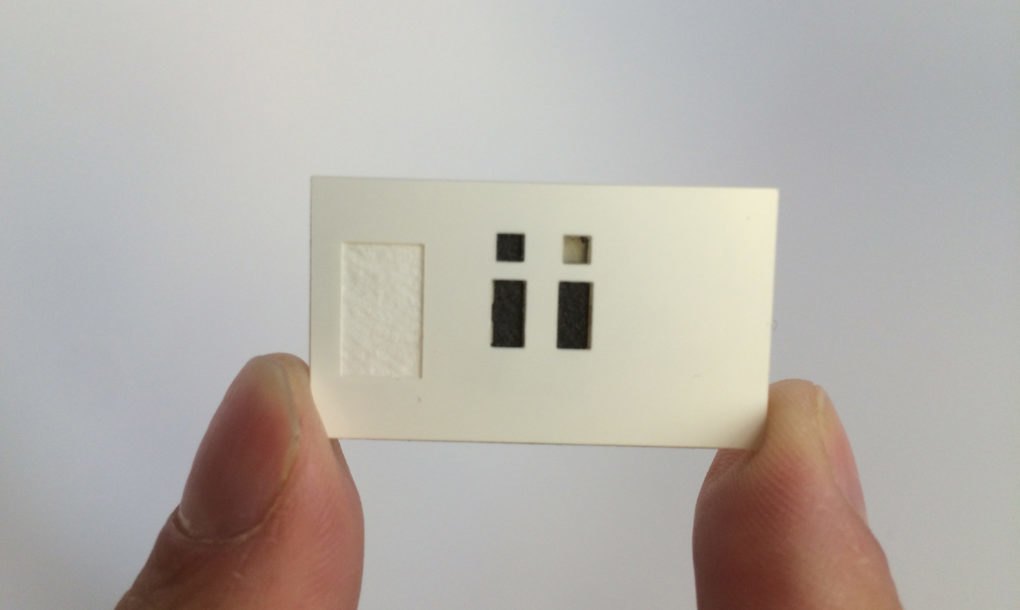News
New Paper Batteries Can Be Discarded And Have No Ecological Footprint

Buh-bye, lithium. Hello, paper-based batteries. Thanks to the Barcelona-based company Fuelium, non-toxic, paper-based batteries may soon be used to power disposable diagnostic devices. Unlike regular batteries, the paper-based batteries can be easily discarded and have no ecological footprint.
“We develop small, nontoxic, inexpensive fuel cells and batteries that don’t need to be recycled and could be thrown away with no ecological impact,” explained Juan Pablo Esquivel, an electronics engineer who is developing the miniature paper-based fuel cells at the National Centre of Microelectronics (CNM) at the Autonomous University of Barcelona (AUB).

Credit: Self-Powered Engineered Devices
Esquivel was born in Guadalajara, Mexico, but moved to Barcelona in 2005. In 2013, he was named by MIT to the list of the 10 most innovative Mexican researchers under 35. The inventor admits that he’s always been obsessed with “making things cheaper, simpler, and easier.” After developing paper-based batteries, Esquivel and his team wanted to find an everyday use for them. With the help of his thesis adviser, Neus Sabaté, he began to focus on portable and disposable diagnostic tests.
As OZY reports, the tests for pregnancy, glucose, and infectious diseases use a very small amount of energy. Most rely on lithium button batteries. However, unlike watches or remote controls, the single-use tests get discarded after one use. In Esquivel’s own words, this is an “ecological aberration.”
Because of this, the 35-year-old and his colleagues decided to use samples (such as saliva or blood) to feed a small fuel cell that could generate the electricity needed for the analysis and to display the result. Lo and behold, it worked. They realized that hydrogen, methanol, and ethanol are not the only energy sources for fuel cells. Rather, bodily fluids can be used to trigger an electrochemical reaction and generate electricity.

Credit: Pixabay
As Inhabitat reports, “Fuelium’s batteries can be customized for different applications with voltages between one and six volts, and power between one and 100 milliwatts.” In addition to being cost-effective, the paper batteries can be easily integrated as the battery materials are compatible with manufacturing processes for single-use diagnostic tests.
According to the company, any liquid sample can activate the paper-based batteries. This suggests they may one day be used in the areas of infectious diseases, women’s health, and veterinary medicine, among others. Esquivel told OZY that the non-toxic batteries don’t need to be recycled. Rather, they can be tossed out with zero ecological impact.
Fuelium was founded in 2015 with seed money from the inventor’s personal savings, funding from the Repsol Foundation startup accelerator program, and grants from the Spanish government and the European Commission. According to the Autonomous University of Barcelona’s Research Park, the company’s batteries “only generate the amount of energy needed for each application and do not contain heavy metals or are harmful to health.”
What are your thoughts? Please comment below and share this news!
h/t OZY
Typos, corrections and/or news tips? Email us at Contact@TheMindUnleashed.com
